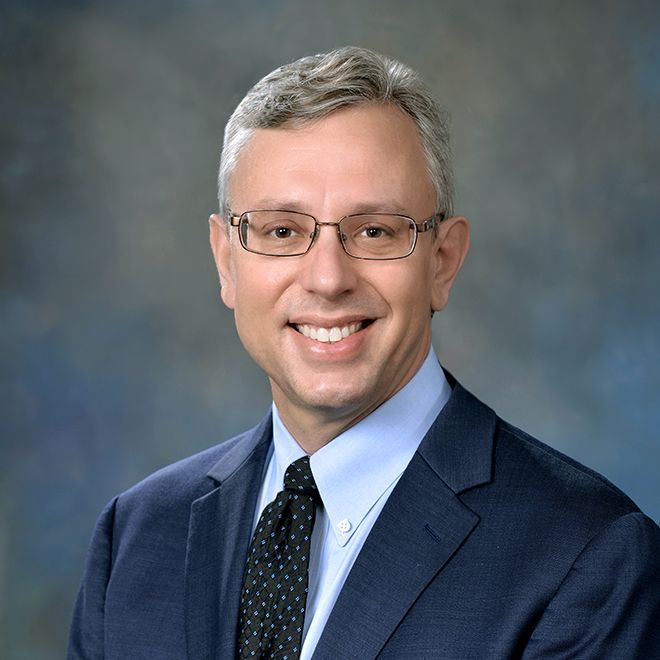
In a full-circle moment, Baylor alum Thomas Lloyd, Ph.D. ’02, M.D. ’03, takes the helm as Department of Neurology chair
For Thomas Lloyd, Ph.D. ‘02, M.D. ‘03, named chair of the Department of Neurology at Baylor College of Medicine in April 2023, the seemingly chance moments in life can create some of the most fortuitous experiences.
The spark that ignited his career was the result of his willingness to experiment. While pursuing his Bachelor of Arts in chemistry and biochemistry at Rice University, Dr. Lloyd participated in the Summer Undergraduate Research Training (SMART) Program at Baylor.
“The SMART Program opened my eyes to medical research,” Dr. Lloyd said. “I remember walking around the Texas Medical Center and thinking about what it would mean to have a career making medical discoveries that would translate into future cures.”
After graduating from Rice and coming to Baylor for his M.D. and Ph.D., Dr. Lloyd had an opportunity to work in the lab of Hugo Bellen, DVM, Ph.D., distinguished service professor in the Departments of Molecular and Human Genetics and Neuroscience. This placement would fuel his career.
“Dr. Bellen’s lab was my first experience in neurology, where I learned about the molecular and cell biology of neurons,” Dr. Lloyd said. “After that experience, I decided to join his lab and research the neuromuscular junction – how motor neurons connect with muscle – which is the basis of neuromuscular medicine. My Ph.D. research got me interested in motor neuron diseases including amyotrophic lateral sclerosis (ALS), inspiring me to study further at Johns Hopkins.”
At Johns Hopkins University School of Medicine, he pursued postdoctoral work, residency and fellowship training in neurology and neuromuscular medicine before joining the faculty, serving as a professor of Neurology and Neuroscience, an attending physician at Johns Hopkins Bayview Medical Center and co-director of the Johns Hopkins Myositis Center.
Now that he has returned to Baylor in a “full-circle moment,” Dr. Lloyd is ready to leverage his Johns Hopkins training, top-notch expertise and the Department’s outstanding clinicians and educators and excellent neurologic research to grow the clinical research mission and deliver the medical discoveries that will help patients with neurological diseases.
A native Houstonian and father of two, he is an expert in ALS research and other neuromuscular disorders. His work focuses on researching how to uncover the mechanisms of motor neuron degeneration using simple genetic model systems in order to identify novel drug targets for motor neuron and muscle diseases.
“Twenty years ago, the disciplines around brain health – neurology, neurosurgery, neuroscience and psychiatry – were considered separate and distinct,” he said. “As we’re learning more about the brain and developing new technologies, we have more opportunities to integrate what we are learning about aging, molecular and cell biology and basic neuroscience with clinical practice in these fields, with the goal of better treating neurological diseases.”
To enable future breakthroughs, Dr. Lloyd wants to establish a physical center to foster collaboration and innovation between all the different areas of science surrounding the human nervous system.
“Take for example, Alzheimer’s disease – Baylor has many experts researching this ailment from the perspectives of aging, cell biology, genetics and neuroscience, as well as clinicians including neurologists, psychiatrists and neuropsychologists who are tackling it from the clinical perspective and caring for these patients,” he said. “Bringing them all together in the same space would allow for synergism and partnership to help develop the next treatments for that disease.”
Dr. Lloyd is also eager to foster more fortuitous connections through recruiting leading physician-scientists, who can help bring advances from the lab into the clinic to offer patients cutting-edge treatments and educate the next generation of physician-scientists.
“We want these experts working beside other experts in different yet related fields, with Baylor trainees learning in the same environment,” Dr. Lloyd said. “All for patients who depend on us to produce groundbreaking neurologic treatments.”


